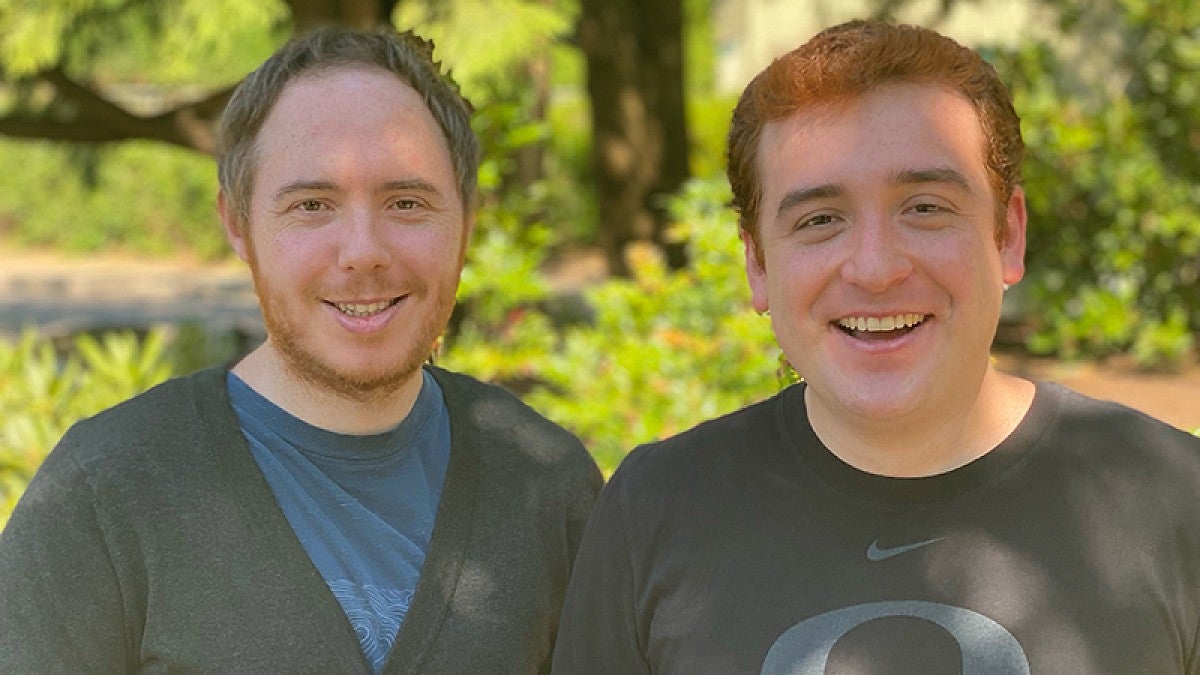Gabriel Luna-Arvizu, a doctoral student in the lab of UO biology professor Dan Grimes and the Institute of Molecular Biology, has received a Gilliam Fellowship for Advanced Study.
The highly competitive national fellowship is awarded by the Howard Hughes Medical Institute. The award prepares students from historically underrepresented groups for leadership roles in science and science education and funds three years of research and teaching.
“I was pretty excited when I heard the news,” Luna-Arvizu said. “It’s taken me a while to digest what the implications were for me, not only as a student and a member of this lab, but also (thinking about) how I could contribute through this funding to address some issues regarding diversity and inclusion in science.”
A native of Mexico who grew up in the central city of Celaya, Luna-Arvizu was drawn to the UO by the opportunity to do research using zebrafish. Researchers in the Grimes Lab study the left-right asymmetries among internal organs in the human body, examining how they develop and grow and how they contribute to human diseases including congenital heart disease and other birth defects.
Luna-Arvizu joined the lab in the spring of 2019 after receiving his master’s degree from the Institute for Scientific and Technological Research in San Luis Potosi, Mexico. He studies a protein believed to be essential for left-right patterning, the process by which the left-right axis is established in an embryo.
“Gabriel is not someone who gets upset if things go wrong, as often happens in experiments,” said Grimes, who serves as Luna-Arvizu’s advisor. “He’s very exploratory, and he’s always trying different ways of doing things.”
The Gilliam Fellowship program encourages the relationship between students and their advisers. All advisers participate in a yearlong, culturally responsive mentorship development training, which is a hallmark of the Gilliam program. Each fellow receives an annual award, which includes a stipend, a training allowance and an institutional allowance for travel to conferences and other expenses for up to three years. The fellowship will fund efforts by Luna-Arvizu and Grimes to host events to help develop a healthier, more inclusive academic scientific ecosystem.
“This award really shows Gabriel is primed to be a future leader, not only in research, but also in terms of his commitment to diversity and to other people,” Grimes said. “I think one of his key strengths is that he really revels in the successes of other people around him.”
Grimes pointed to Luna-Arvizu’s experience mentoring undergraduate students in the sciences as one of the aspects that may have helped attract the attention of the fellowship award committee. In addition to being involved in the UO’s Summer Program for Undergraduate Research in Life Sciences, or SPUR, Luna-Arvizu serves as a mentor in the Joint Undergrad Graduate Mentorship Program, or JUMP, run by the UO Women in Graduate Science.
“Being a mentor has had kind of a snowball effect,” Luna-Arvizu said. “When I started to get involved with these activities, I started to gain more confidence and I thought maybe I should reach out to these other programs and get involved. In general, there's a real need for other students to know more about opportunities that are available to them and for the scientific community to try to be as inclusive as it can.”
Luna-Arvizu and the other fellows in his group will attend the Gilliam annual meeting, where they will participate in leadership training and gain important insight and advice from leading Howard Hughes Medical Institute scientists. The program aims to give doctoral students the tools to use their strengths and experiences to the benefit of science, to influence the environment, maximize their collaborations, and elevate their voices as scientific leaders.
Luna-Arvizu is the UO’s second doctoral student to receive the Gilliam Fellowship. Emily Sayles, student in the lab of UO biology professor and Howard Hughes Medical Institute Investigator Chris Doe, received the award in 2016.
—By Lewis Taylor, University Communications


